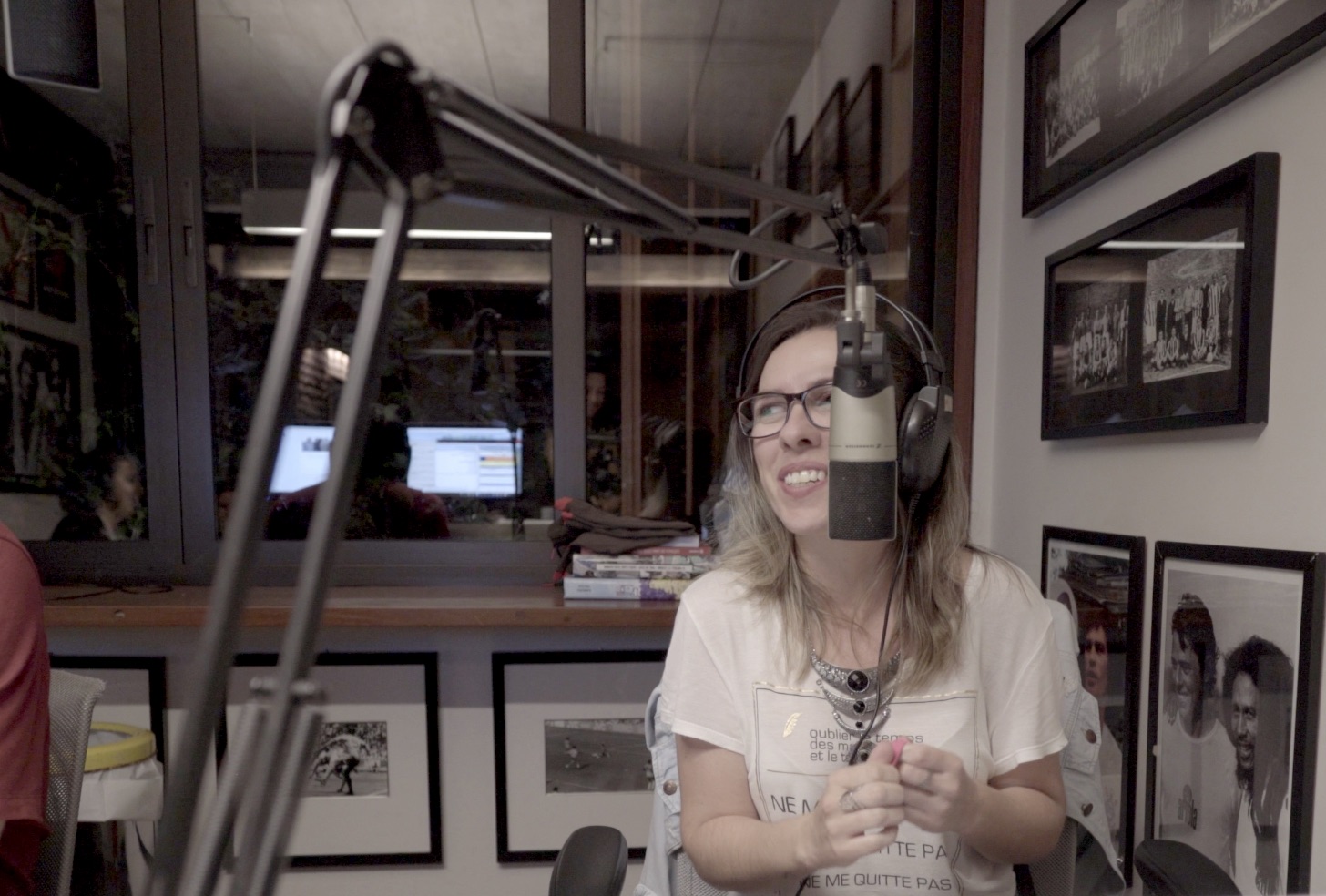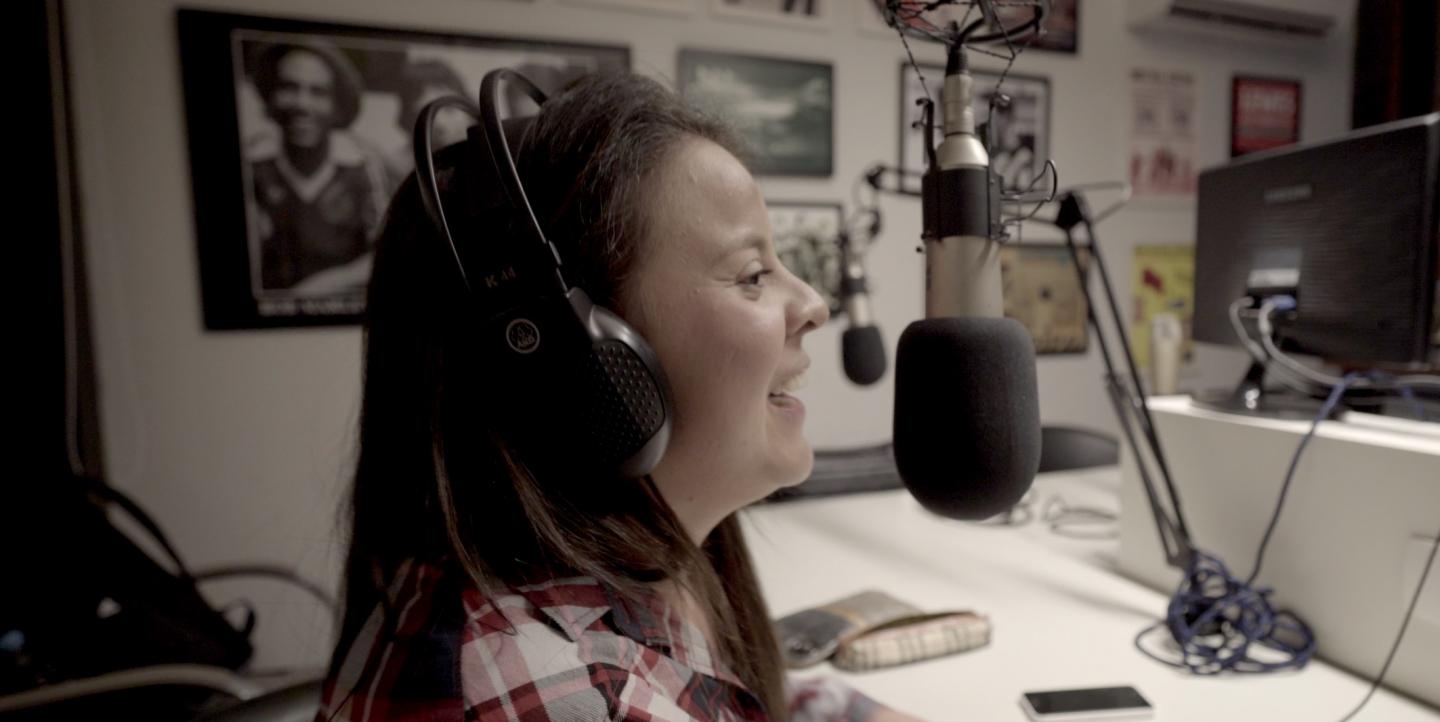Only 12 percent of sports news is presented by women worldwide, and only four percent of media content is dedicated to women's sports, according to United Nations Educational, Scientific and Cultural Organization (UNESCO). This is true even in Brazil, the country of soccer, where women face a particular set of challenges when reporting on the game.
Between 1941 and 1979, Brazil's government banned women from playing soccer and other sports that were “incompatible with their nature.” Even after the ban was lifted, prejudice and stereotypes remained.
“Brazil is recognized as the country of soccer, but it is the country of men's soccer,” says Angelica Souza, an advertising expert and media entrepreneur. “Soccer is thought of as exclusively for men.”
In May 2015, Souza, with three other women who also worked in communication — Roberta Nina Cardoso, Renata Mendonça and Nayara Perone (who has now left) — started Dibradoras, a website dedicated exclusively to women's sports.
“We realized there was no coverage of women's sports. The world is half female and half male, so why is the coverage of sports so unbalanced?” says Souza.
Over the past few years, the project has grown into a weekly podcast available on iTunes, and a daily blog.

The word dibradoras means “the dribblers.” “Society is sexist, and sports is just another channel through which this becomes evident. All women who like soccer are born 'dribblers' because they have to dribble through sexism and many difficulties,” says Souza, explaining the name.
The podcast includes weekly interviews with Brazil's top female athletes in many sports, from judo to basketball, but the blog focuses specifically on soccer. Since they started, they have interviewed the biggest stars, including Marta Vieira da Silva, one of the world's best female players and the only soccer player in the world who was chosen six times as the Best FIFA Women’s Player of the Year.
One of the excuses often cited for the lack of coverage is that there is no interest in women's soccer, and that women's games are not as competitive or entertaining as men's. However, the women behind Dibradoras found a large audience for their content, with an average of 1,000 downloads per podcast and 200,000 average monthly readers on their blog. They also say that the narrative that women’s sports aren’t popular or competitive is part of a vicious circle that starts from the sexist view of what girls should be doing when they are growing up.
“Compared to boys, girls receive hardly any soccer training in Brazil,” says Souza. “They are not encouraged to train in school, because sports remain a masculine thing. This has consequences in professional sports, because there is little investment. Obviously if you pick a girl who started training at 15 and compare her with a boy who started at seven, they will have a different technical level.”
The women who do cover sports are often the victims of harassment. In March 2018, Brazilian women sports reporters launched the campaign #DeixaElaTrabalhar (Let her work). The hashtag went viral, as did a video showing footage of women reporters being kissed and groped during broadcasts.
The right coverage of women’s sports — especially soccer — can help break this cycle of sexism, according to the Dibradoras team, because it gives girls people to look up to.
“The idols that inspire us are on TV. Boys watch the World Cup games dreaming that one day they will be able to play on that same pitch,” writes Mendonça in a recent blog post. “Up until now, girls dreamed of being like Neymar, Coutinho or Firmino (men’s soccer players), instead of being inspired by Marta, Cristiane or Formiga (women’s soccer players).”
There have been several steps forward when it comes to Brazil's coverage of soccer, which Dibradoras pointed out in one of their latest videos. Among them, more women reporters are covering main sporting events and leading panels on soccer.
“We have conquered a space that used to be restricted to men: that of opinion-making,” says Mendonça, referring to television shows on soccer that now include women.
For example, Viviana Vila is an Argentine journalist who became the first woman to offer in-match commentary for the World Cup in the U.S. when she was a commentator for Telemundo during the 2018 tournament. Others include Comenta Quem Sabe (Who Knows Comments), an all-female roundtable aired by Fox Sports in Brazil that includes journalists and analysts Vanessa Riche, Livia Nepomuceno and Daniela Boaventura, and Ana Thaís Matos, a reporter who is now a permanent member of the Troca de Passes show on SporTV in Brazil.
Another victory for women in sports coverage is the announcement that Globo, Brazil's national TV network, will broadcast the 2019 Women's FIFA World Cup for the first time, which will be held in France in June.
“Starting in 2019, girls will also be able to recognize themselves in those who were (and are) like them: the ‘intruders’ of the world of soccer, those who insisted on playing when everything around them insisted they could not be there,” writes Mendonça. “Today's girls will be able to dream of representing Brazil on the national team in a World Cup one day.”
Main image is of Angelica Souza, Dibradoras' founder. All images are courtesy of Claudia Jardim.
The reporting for this story was done in conjunction with Claudia Jardim and Mariangela Maturi as part of a larger report, A Girls’ Game, which is a multimedia project that was funded by Innovation in Development Reporting Grant granted by the European Journalism Centre
Irene Caselli is a multimedia freelance journalist with 14 years of experience in print and broadcasting. She reported out of Latin America for a past decade and she is currently living in Italy. She regularly reports for international media, such as BBC News, The Washington Post, The New York Times, The Guardian and Monocle. She is a contributing editor to Index on Censorship.

